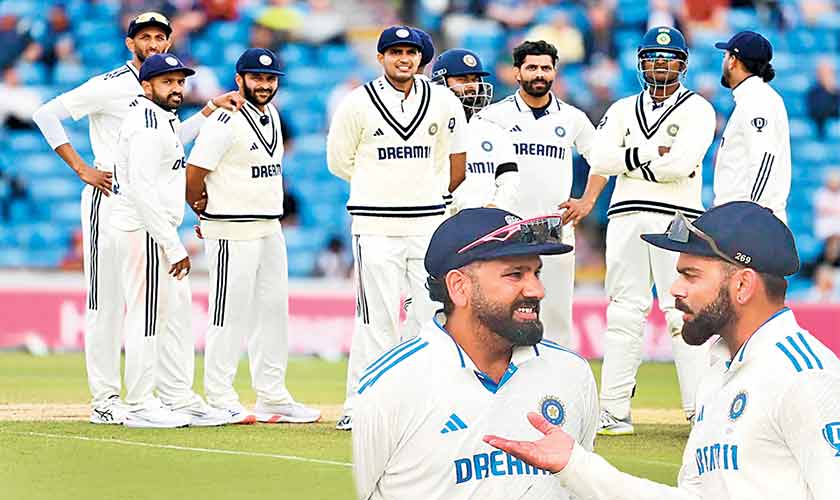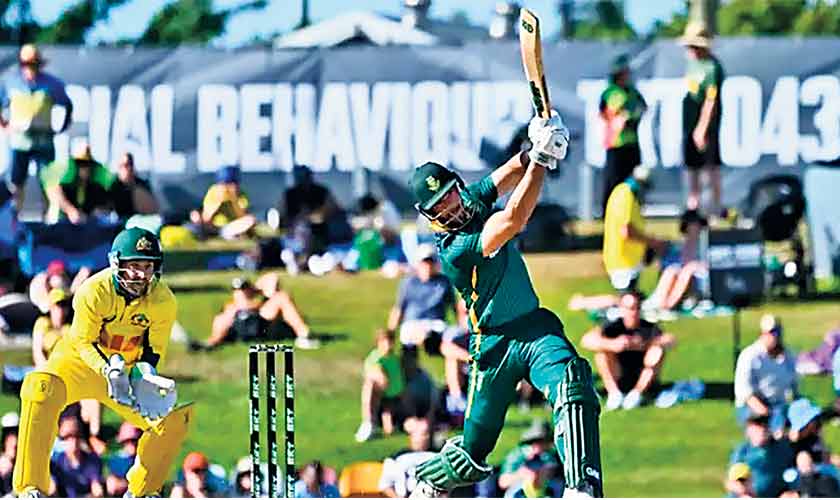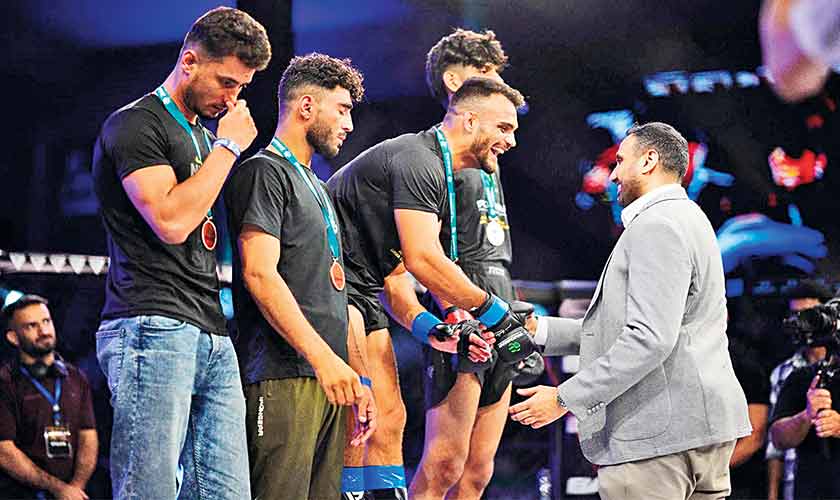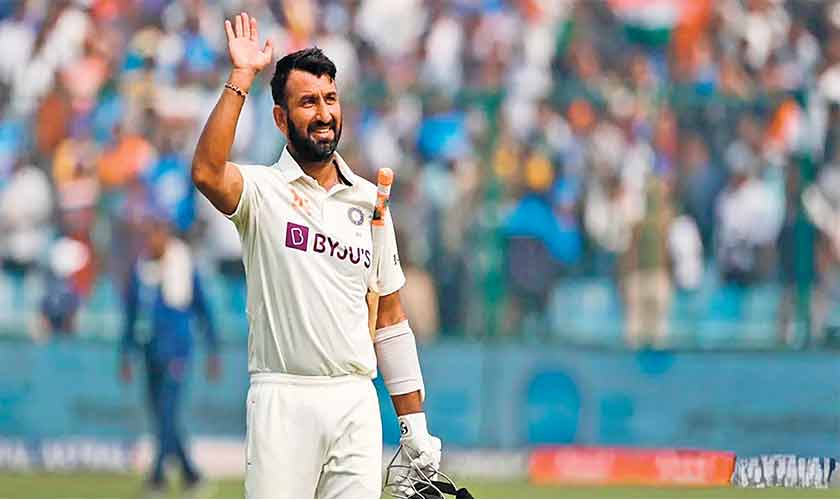India has long been a dominant force in the world of cricket, especially in the Test format. The current cricketing landscape has been significantly shaped by the exceptional contributions of Virat Kohli and Rohit Sharma, two of the most prolific and influential figures in Indian cricket
history. Their retirements could pose a substantial challenge for India’s Test team, raising concerns about leadership, experience, and performance amidst a transition phase.
The Indian cricket team’s new chapter under captain Shubman Gill kicked off on a challenging note, with a defeat against England in the opening Test of the Anderson-Tendulkar Trophy last month.
The bowlers struggled to make an impact, unable to defend a target of 371 runs in the fourth innings. Apart from Jasprit Bumrah, the fast bowlers found it tough against the English batters.
Beaten 4-1 in India last year, England’s captain Ben Stokes’ men are tipped to turn the tables on home soil in a series that launches the new cycle of the World Test Championship following South Africa’s dramatic defeat of Australia in last week’s final at Lord’s.
England, however, are without the retired duo of James Anderson and Stuart Broad, their two most successful Test bowlers of all time with a combined 1,308 wickets between them.
Shubman Gill has taken on a significant challenge as the captain of Team India. At just 25 years old, this right-handed batsman, with limited captaincy experience, has stepped into the leadership role following the unexpected retirements of Rohit Sharma and Virat Kohli. With the absence of these two cricketing legends, Gill has felt the weight of the changes.
The middle-order batting performance also fell short, resulting in significant collapses during both innings. Additionally, fielding was a sore spot, as the team dropped several catches. This led to a wave of criticism from fans on social media, with many calling for Virat Kohli and Rohit Sharma to return from retirement.
In May this year, Virat Kohli announced his retirement from Test cricket, marking the end of a distinguished career in the longest format shortly after captain Rohit Sharma made a similar announcement. The timing of Kohli’s decision was noteworthy, as it came just prior to the upcoming discussions among selectors regarding the squad for the ongoing England Test series.
Kohli’s final Test came in January, concluding a series in which India was defeated 3-1 by Australia-an outcome that resulted in the loss of the Border-Gavaskar Trophy for the first time in a decade. However, his most enduring legacy lies in his captaincy from 2014 to 2022, during which he led the Indian team with distinction.
Debuting in 2011, Kohli played 123 Tests, amassing 9,230 runs at an average of 46.85, including 30 centuries and 31 fifties. He captained India in 68 Tests-more than any other Indian skipper- winning 40 of those matches, making him the country’s most successful Test captain. Globally, he ranks fourth in Test victories by a captain, behind Graeme Smith (53), Ricky Ponting (48) and Steve Waugh (41).
Kohli is among a select group of cricketers to have scored over 100 centuries in professional cricket, with records including 30 in Tests, 51 in ODIs, one in T20 Internationals and nine in first- class cricket.
As Test captain, Kohli was one of the most prolific batters in the format, scoring 5864 runs at an average of 54.80. It helped that his captaincy stint largely coincided with his best years with the bat in Test cricket. While his runs are the fourth highest by a captain, his 20 centuries while leading India are surpassed only Graeme Smith who scored 25 hundreds as a Test captain.
In matches that he led India, Kohli contributed 16.45 percent of India’s bat runs. Among 18 captains to have led in 50 or matches, Kohli’s contribution is second highest after Root’s 16.67 percent. No other captain has contributed more than 15 percent to their team’s totals among the others.
Earlier, India’s captain Rohit Sharma has announced his retirement from Test cricket, effective immediately, marking a significant milestone in his illustrious career. The 37-year-old, who previously stepped down from T20 International duties following India’s victory at the ICC Men’s T20 World Cup 2024, conveyed his decision via an Instagram story.
He also clarified that he will remain available for One Day International (ODI) selection. Despite recent indications of ongoing engagement with Test cricket-such as his expressed enthusiasm for leading the Indian team alongside key bowlers Jasprit Bumrah, Mohammed Shami and Mohammed Siraj during upcoming series in England-Rohit’s sudden announcement appears to be a reactive decision.
Rohit Sharma concludes his Test career with 4,301 runs in 67 matches, averaging 40.57. His Test record includes 12 centuries and 18 half-centuries, with a career-high score of 212 against South Africa in Ranchi in October 2019.
Although his initial foray into Test cricket-marked by two centuries in his debut series against the West Indies-raised hopes, his subsequent performances over the next five years did not fully meet expectations. During this period, Rohit’s average stood at 39.62 in 27 Tests, marginally above the top-six batting average of 38.02.
As captain, Rohit has led India in 24 Tests since taking over from Virat Kohli in 2022, securing 12 wins-a commendable record that ranks second among Indian captains behind Kohli. Under his leadership, India reached the final of the 2023 World Test Championship, though they were defeated by Australia. The recent series have been challenging, including a 3-0 home defeat to New Zealand-the first at home in 12 years-and a 3-1 loss to Australia in the Border-Gavaskar Trophy. Rohit was dropped for the decisive fifth Test against Australia following a slump in form.
Virat Kohli, renowned for his aggressive batting style and captaincy, has amassed over 8,000 runs in Test cricket at an average of approximately 49.3, making him one of India’s highest run- scorers in the format. His consistent performance across home and away series, including pivotal innings in places like Australia, England, and South Africa, has been central to India’s Test success.
Rohit Sharma, with a towering batting average of around 46.2 and over 3,300 runs, has been instrumental in strengthening India’s upper-order stability and was recently appointed as the limited-overs captain, indicating his leadership stature.
Both Kohli and Rohit have decades-long international experience, which provides stability and predictability. Their departure may lead to increased vulnerability, especially in challenging overseas conditions.
Post-Ashwin and Kohli’s early retirement phases, India’s Test win percentage dropped from 55% to 47% over the subsequent two years, illustrating how vital experienced players are for consistent success.
Both Sharma and Kohli have a remarkable track record of converting starts into big scores—over 20% of their innings resulted in 100+ runs. The statistical importance of such innings cannot be overstated, as they boost team totals and morale.
Kohli’s aggressive captaincy and Rohit’s calm approach have established alternative leadership models. Their combined on-field influence has statistically correlated with improved team performance metrics—India’s win ratio under Kohli’s captaincy stood at approximately 59%, and under Rohit, it approaches 66%.
Historical data suggests new entrants tend to have initial averages around 35-45, with gradual improvement. A tipping point occurs when players sustain averages above 50 in the first 20 Tests, similar to what Kohli and Rohit achieved early on.
Based on recent performances, a decline of 4-8% in the team’s Test win ratio in the first two years post-retirement is predictive, especially if the replacement players struggle to adapt.
India’s overseas win percentage has historically been 40-45%. This could decrease further if newly integrated top-order players fail to adapt quickly, especially in hostile venues like Australia and England.
Team India is currently in England for a 5-Test series, having faced a setback in the first Test at Headingley, where they lost by five wickets. However, both the fans and the team management remain optimistic. They believe that despite the young squad’s limited experience and the challenges of a new captain, the team will regroup and aim to finish the series on a strong note.
khurrams87@yahoo.com






